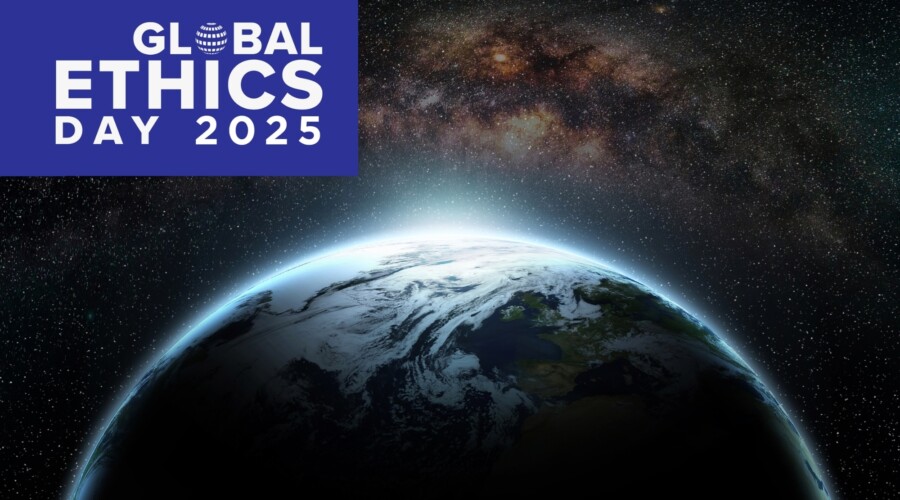The editors of Ethics & International Affairs are pleased to present the Summer 2021 issue of the journal!
The highlight of this issue is a roundtable organized by Adrian Gallagher on the responsibility to protect in a changing world order. The roundtable contains an introductory essay by Michael Ignatieff and contributions from Gallagher and Nicholas J. Wheeler; Cristina G. Stefan; Luke Glanville and James Pattison; and Jennifer M. Welsh. Additionally, the issue includes feature articles by Daniele Amoroso and Guglielmo Tamburrini on meaningful human control over weapons systems and Patricia Goff on inclusive trade. It also contains a review essay by Andrea C. Simonelli on climate displacement and justice and book reviews by Reed Bonadonna, Cian O'Driscoll, and Shelley Wilcox.
ROUNDTABLE: THE RESPONSIBILITY TO PROTECT IN A CHANGING WORLD ORDER
The Responsibility to Protect in a Changing World Order: Twenty Years since Its Inception [Open Access]Michael IgnatieffThe year 2021 provides an important opportunity to reflect on RtoP, while also considering its future. Ignatieff frames this roundtable through personal reflection on his own role during RtoP's inception, considering how the norm has evolved over 20 years, and its prospects for survival in a changing world order.
Trust or Perish? The Responsibility to Protect and Use of Force in a Changing World OrderAdrian Gallagher and Nicholas J. WheelerThis essay considers the future prospects for Security Council-authorized uses of force under the RtoP 20 years after the ICISS report and 15 years after the World Summit Outcome. The essay's central argument is that trust and ambivalence (the space between trust and distrust) act as key enabling (but not determining) conditions of the use of force by the Council for RtoP purposes.
The Responsibility to Protect: Locating Norm EntrepreneurshipCristina G. StefanThis essay examines the issue of norm entrepreneurship as it has been used in conjunction with the RtoP, 20 years after the emergence of The Responsibility to Protect report produced by the ICISS. It examines norm entrepreneurs with enough drive, motivation, and resources to keep RtoP on the international agenda in a changing world order, after Western middle powers, such as Canada and some European Union member states, had previously acted as indispensable norm entrepreneurs.
Where to Protect? Prioritization and the Responsibility to Protect [Open Access]Luke Glanville and James PattisonThis essay demonstrates the importance of questions of prioritization for RtoP. The authors delineate some of the issues involved in assessing the issue of prioritization, beginning with what they call the "basic maximization model," and introduce additional atrocity-specific and response-specific issues that also need to be considered.
The Security Council’s Role in Fulfilling the Responsibility to ProtectJennifer M. WelshThis essay discusses the Security Council’s role in fulfilling its responsibility to protect and advances two somewhat contrasting arguments about the original ICISS report. First, it suggests that the commissioners may have underestimated the Council's potential contribution, by concentrating on the authorization of coercive means to address crises of human protection. Second, it argues that the willingness of the ICISS to identify potential alternatives to the Security Council when its members are paralyzed appears in retrospect to have been both bold and forward looking.
FEATURES
Toward a Normative Model of Meaningful Human Control over Weapons Systems [OPEN ACCESS]Daniele Amoroso and Guglielmo TamburriniThe notion of meaningful human control (MHC) has gathered overwhelming consensus and interest in the autonomous weapons systems (AWS) debate. Some delegations participating in discussions at the Group of Governmental Experts on Lethal Autonomous Weapons Systems meetings endorsed the notion of MHC with the proviso that one size of human control does not fit all weapons systems and uses thereof. Building on this broad suggestion, the authors propose a "differentiated"—but also "principled" and "prudential"—framework for MHC over weapons systems.
Inclusive Trade: Justice, Innovation, or More of the Same?Patricia GoffInclusive trade is taking hold in various forms in international organizations and in the trade policy of national governments. In this article, Nancy Fraser's three justice idioms, which correspond to economic, cultural, and political dimensions of justice, provide a crucial lens for assessing inclusive trade agreement provisions. Applying this framework to the inclusive trade agenda shows that trade agreement provisions intended to favor women and Indigenous peoples go some distance in addressing claims for recognition and representation but accomplish less in remedying injustices associated with maldistribution.
REVIEW ESSAY
Climate Displacement and the Legal Gymnastics of Justice: Is It All Political? [OPEN ACCESS]Andrea C. SimonelliThe future for people becoming displaced due to climate processes is still unknown. The effects of climate change are more apparent every day, and those most acutely impacted are still unable to access an appropriate legal remedy for their woes. This review essay considers two new books that evaluate the limits to international legal protections and the application of justice: Matthew Scott's Climate Change, Disasters, and the Refugee Convention and Fanny Thornton's Climate Change and People on the Move: International Law and Justice.
REVIEWS [All Open Access]
On Obedience: Contrasting Philosophies for the Military, Citizenry, and CommunityPauline Shanks KaurinReview by Reed BonadonnaAlong with its importance to civil-military relations and civilian control of the military, obedience is at the heart of military professionalism. Shanks Kaurin has created a guide for the discussion and the practice of obedience and disobedience.
The Laws of War in International ThoughtPablo KalmanovitzReview by Cian O'DriscollPart critical history of international law, part contextualist history of international political thought, and part constructivist theorization of the norms that govern the legal regulation of armed conflict, this book offers an intellectual history of the laws of war before their codification.
No Refuge: Ethics and the Global Refugee Crisis Serena ParekhReview by Shelley WilcoxIn this book, Parekh directs our attention to a less visible refugee crisis, namely, the abysmal conditions that refugees must endure before— or most often, instead of—reaching a Western country where they can claim asylum. No Refuge fundamentally changes our understanding of the global refugee crisis and amplifies our moral responsibilities to global refugees.



